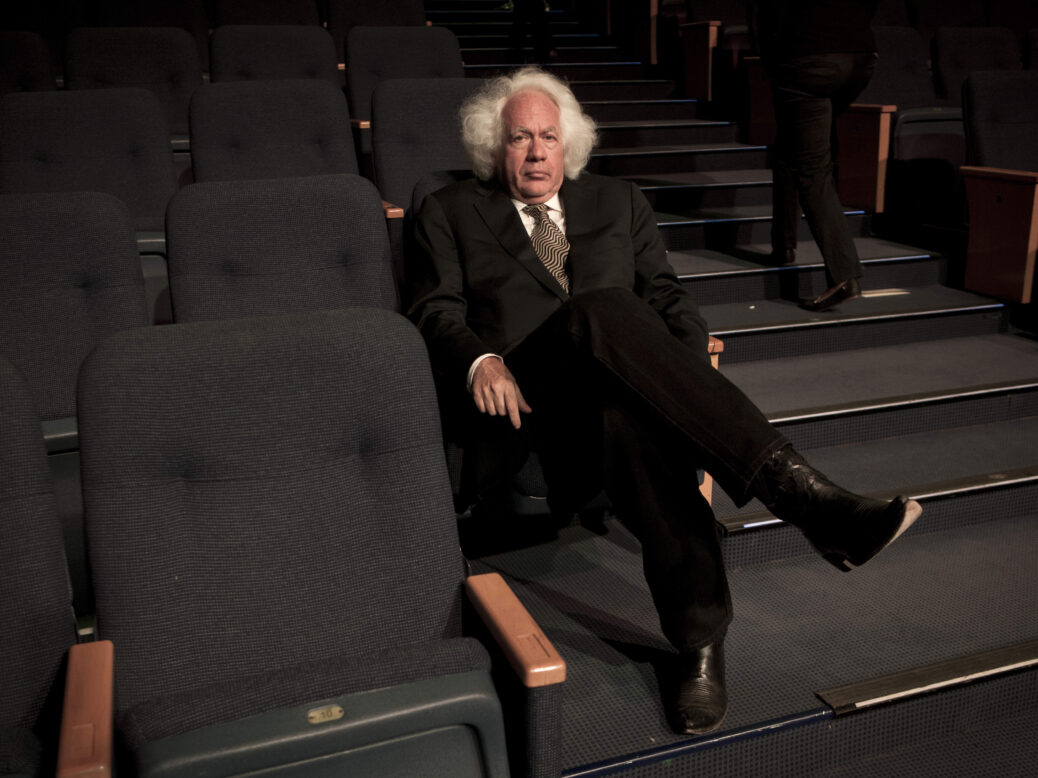
It’s hardly news that the magazine has become an endangered species. It’s a development I had the misfortune of witnessing first-hand during my brief but eventful tenure as assistant literary editor of the New Republic in Washington, DC.
At TNR, I was lucky enough to work for the legendary literary editor and Washington personality Leon Wieseltier, an imposing figure with a shock of unruly white hair and a mental Rolodex of apt ideas on everything from Henry James to hot dogs. (Klimt, he once told me, “is wallpaper”.)
Though I was only a month out of college when I started at the magazine, Leon trusted me to manage his beloved “back of the book”. People had a way of growing into their responsibilities under Leon’s guidance, and I cared for the books and arts section of the New Republic as tenderly as I could, eliminating bad breaks (hyphenated words breaking across paragraphs or, worse, hyphenation across pages or columns) and widows (lines containing fewer than three words), fact-checking, copy-editing and keeping the office well stocked with M&Ms.
It wasn’t a glamorous job but it was a fulfilling one. I was working in the service of an institution I believed in for an editor I respected. In exchange, I was given the opportunity to write in print alongside the likes of Amartya Sen and Cynthia Ozick. For all his force of personality, Leon had reverence for his writers, even the untutored 23-year-olds he took on as assistants.
But six months after my arrival, the unthinkable happened: the New Republic lost almost all of its staff. In a matter of hours, its legacy went down the proverbial drain after the magazine’s newish owner, Chris Hughes, a co-founder of Facebook, unceremoniously sacked its universally well-liked editor-in-chief, Franklin Foer. This betrayal was the latest in a series of efforts to transform the publication into a well of “snackable content”.
The conflict took on symbolic dimensions: old journalism, committed to thoroughness and rigour, was pitted against new journalism, which opted for feats of ostentation calculated to generate page views. Old journalism lost out. Almost all of TNR’s editors, Leon among them, quit en masse. I, too, departed, leaving TNR to the vultures.
Arriving at the Vineyard Theatre in New York last week for a performance of Gloria, a new play about the toxic climate of contemporary magazine publishing, I expected to see something that hit close to home. Gloria came with high credentials. Welcoming it, the New York Times critic Ben Brantley noted that it hinged on “one deeply upsetting event”.
The latest from the acclaimed playwright Branden Jacobs-Jenkins, recipient of last year’s Obie award for Best New American Play, Gloria is set in the offices of an unnamed magazine. The characters are so familiar that they border on the cartoonish: the overeager intern, the jaded staffers, the supercilious editors who can’t be bothered to learn a lowly copy-editor’s name. Wasted talent and short tempers make for an entertainingly if exaggeratedly unpleasant tableau in the first act, which treats us to a barrage of neglected editorial assistants in their late twenties. These sad specimens lament their career prospects and debate the relevance of their work. “It’ll all wind up in the trash by Friday,” says an irate fact-checker. This much I recognised. But the “deeply upsetting event” was brutally unexpected.
It was a literal, rather than metaphorical, massacre: a shooting spree. The play (written long before the attack at the French satirical magazine Charlie Hebdo) dramatically changed direction when an underappreciated copy-editor – the titular Gloria – gunned down most of the office staff, leaving a few stragglers to duke it out in the second act. After the tragedy, the survivors wage petty turf wars, this time in the field of book publishing. Jacobs-Jenkins’s characters are deliciously unlikeable as they skirmish for the rights to the inevitable “Gloria” memoir.
Gloria is a little harsh about the daily reality of working for a magazine, which wasn’t nearly so dispiriting, but its central point is well taken: in a world demanding journalism that sells, how can we write about our experiences, and the experiences of others, without cheapening them? Writers have always been in the business of mining and repurposing personal tragedies – but now that the Chris Hugheses of the world control the purse strings, it is harder than ever to disentangle the forces of emotion and ambition. And here am I, doing the same thing in these pages that the characters in Gloria did in their memoirs: exploiting my own (much lesser) trauma.
One image endures. The week TNR imploded, I shipped hundreds of advance review copies that Leon had opted not to review to New York, to serve as showpieces on the shelves of Hughes’s swanky new office. The same week, I helped Leon pack up his library. He had something to say about each of his hundreds of books. This juxtaposition paints a portrait of my chosen industry that will haunt me for a long time.
Gloria confuses the recent decline of publishing with its total bankruptcy. If we lament the decline of journalism, it is not because we want to remake magazines in the image of their forebears – pre-digital journalism was famously hostile to women, for one thing – it is because we want to inhabit a world where it is still possible to translate lived experience to the page with integrity. And if we didn’t find these acts of translation worthwhile, why would we bother to write articles – or plays – at all?



